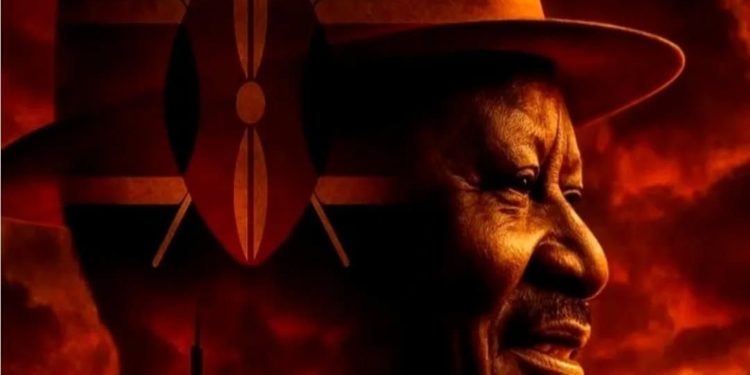The Orange Democratic Movement (ODM) celebrated its 20th anniversary in Mombasa last weekend. As featured in today’s standard newspaper, beneath the festivities lay a troubling reality. Kenya’s oldest opposition party is grappling with an ODM succession crisis that has split the founding family. This crisis now threatens its political future.
What should have been a moment of unity became a public spectacle of family discord. Winnie Odinga, daughter of the late party leader Raila Odinga, openly questioned her uncle’s capacity. She asked whether Dr. Oburu Oginga can lead the party. She also questioned his ability to manage the delicate relationship with President William Ruto’s broad-based government.
The Mombasa Confrontation
Winnie spoke at the Mama Ngina Waterfront with President Ruto in attendance. Party officials described her remarks as a sharp critique of the current leadership. Her message was clear and direct.
“It’s only one Baba Raila Odinga who would manage it,” she told delegates. This implicitly suggested that her uncle cannot handle the complex political arrangements. These were arrangements her late father navigated with exceptional skill.
The timing of her remarks was deliberate. Just days earlier, on October 13, Dr. Oginga was confirmed as ODM party leader. The National Governing Council confirmed this. He took over from his brother who passed away in India on October 15.
The speed of this transition has become a flashpoint for family tensions. Oburu was designated as interim leader before Raila was even buried.

Demands for Democratic Process
Winnie’s call for a National Delegates Convention (NDC) represents more than procedural concern. It’s a direct challenge to the legitimacy of her uncle’s ascension. This challenge is central to the ODM succession crisis.
“That’s why we want an NDC to decide on the people they’d want to manage it,” she argued. She insisted that ODM’s future should not be determined “in boardrooms or through pillow talk.”
Her position resonates with party loyalists. Many fear ODM is losing leverage under the broad-based government arrangement. The concern is simple but serious. Those currently managing the relationship may lack the political skills that made Raila Odinga such a formidable figure in Kenyan politics.
Family Dynamics and Power Struggles
According to sources within the Odinga family, these tensions have been brewing for weeks. The first visible sign emerged when Winnie failed to participate in an important ceremony. This ceremony appointed her brother, Raila Junior, as the family spokesperson. Her absence was noted and interpreted as deliberate dissent.
Family insiders reveal deeper anxieties. There is fear in the former prime minister’s household. They worry they will be overshadowed by Dr. Oginga’s side of the family in the new power structure. Some family members reportedly favored appointing an outsider as party leader. But events moved too quickly for such alternatives to gain traction.
Leadership Capacity and Political Experience
Dr. Oginga has been in politics for decades. He played a founding role in ODM’s establishment. He responded to the criticism with characteristic calm.
“I’m here as a founder member of the ODM party,” he reminded the audience. He emphasized both his credentials and the bond he shared with his late brother.
However, Winnie’s question strikes at the heart of the ODM succession crisis. Can anyone truly replicate Raila Odinga’s unique ability to navigate Kenya’s complex political landscape? The late leader had an extraordinary capacity. He could forge strategic alliances, manage diverse coalitions, and maintain party cohesion. Whether those skills can be inherited or learned remains an open question.
The Path Forward
ODM now faces a critical choice. The party must decide whether to hold the NDC that Winnie demands. This would allow party delegates to democratically determine leadership. Or it can maintain the current arrangement. But this risks further alienating segments of the party and family.
Can political parties built around dominant personalities survive founder transitions? Kenya’s political history offers few encouraging examples. KANU struggled after Daniel arap Moi. FORD-Kenya faced difficulties following Wamalwa Musyoke’s death. These transitions exposed the institutional weakness of parties overly dependent on individual leaders.
The coming months will reveal whether ODM can bridge these family divisions. Can it emerge as a coherent political force? Or will the party that Raila Odinga built fracture along the fault lines now visible for all to see?
The stakes speak to the maturity of Kenya’s democratic institutions. They also address the sustainability of political movements beyond their charismatic founders.

















